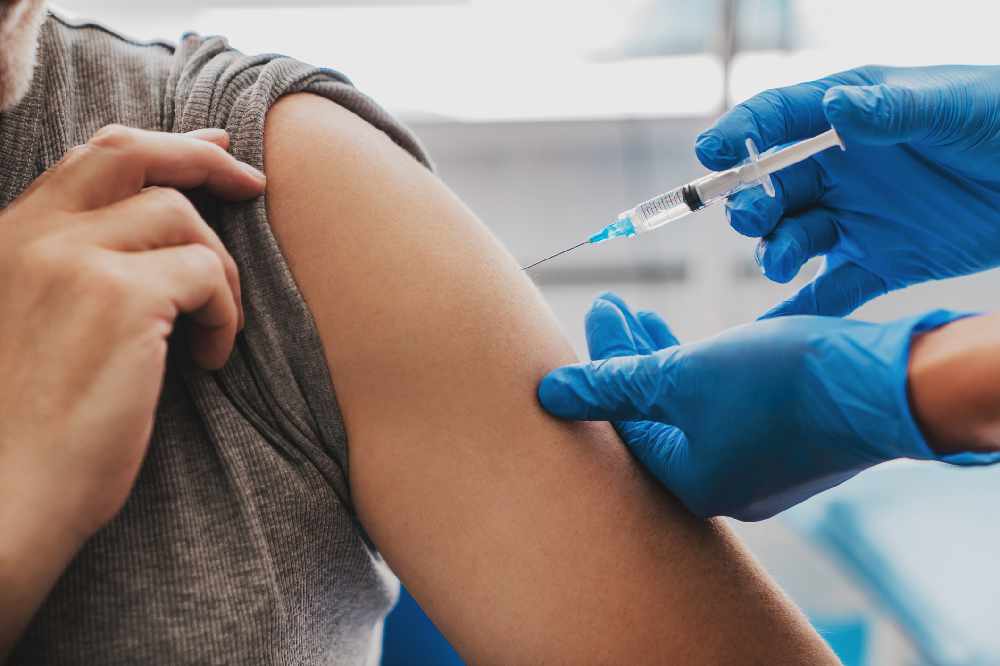
West Midlands people eligible for the free flu vaccine are being urged to take up the offer, after latest data shows many people in the most vulnerable groups remain unprotected.
This comes as 9% of patients in hospital with flu in the region have needed to be moved to intensive care or high dependency units over the last week.
Parents of 2 to 3-year-olds are being reminded to protect their youngsters from flu, as latest figures show that children under 5 years old make up the highest rate of hospitalisations for flu in the country. For the West Midlands, uptake of the nasal flu vaccine in 2-year olds is at best 29.7%, with uptake as low as 11.6%.
While the highest coverage for 3-year-olds in the region is just 30.7%, with lowest figures at 13.2% Encouragingly, rates in primary school children across the country are exceeding last year’s uptake levels for the comparable timeframe, with over 21% vaccinated nationally – an increase of over 7% from last year.
Pregnant women in the region are also at greater risk of hospitalisations due to severe effects of flu, and complications for their unborn child.
However in the West Midlands, the highest uptake is just 31.3%, with a worrying low of just 11.4% uptake. Dr James Chipwete, Health Protection Consultant and flu lead with UKHSA West Midlands, said:
“The latest data gives us great cause for concern, with some of the most vulnerable people of all ages still unprotected against flu.
“The fact that we have seen a rise of 9% of hospitalised flu cases needing treatment in ICUs and HDUs in the region, shows how dangerous flu can be, and we are only at the start of the flu season.
“As cases of flu are increasing, we’re urging parents to get their children protected, as nationally rates of flu are highest in 5–14-year-olds, while the greatest number of hospitalisations for flu are currently in under 5s.
“We are extremely fortunate to have vaccines, which remain our best protection against severe disease and hospitalisation.
“This year, with everyone mixing as we did before the pandemic, and reduced immunity after not mixing as much for the last few years, we are preparing for a challenging winter. Currently COVID-19 levels are low, but cases are likely to rise steeply, and this, along with circulation of flu, could make for one of the most challenging winter seasons we have ever seen.
“That’s why it is so important that people get their vaccines as soon as possible and make sure their children are protected. Getting the vaccine also reduces risk of passing infection to more vulnerable people, who could become severely ill and need hospitalisation – plus adding avoidable strain on our hospitals.
“If you are feeling unwell, make sure you avoid contact with elderly people or those with underlying health conditions – and please get your vaccine if eligible.”
Due to the increase in levels of flu circulating in the community, UKHSA has recommended that it is now appropriate for antiviral medicines to be prescribed in primary care settings. Those eligible for antivirals if they have flu include patients in clinical at-risk groups as well as any who are at risk of severe illness and complications from flu if not treated.
This includes people in those groups who present with symptoms of flu and those who have been exposed to flu-like illnesses from someone they live with, including residents of care homes. Around 33 million people are eligible for the flu vaccine this year.
All primary school children and some secondary school children are being given the option to have it at school. GP surgeries have also invited children aged two and three years old (age on 31 August) for this nasal spray vaccination at their practices. If you’ve missed the school vaccination appointment, there are NHS Community clinics available.
This year it’s easier than ever to get your flu vaccination via your GP, a pharmacy and some maternity services for those that are pregnant. Find out more on the NHS website.












Comments
Add a comment